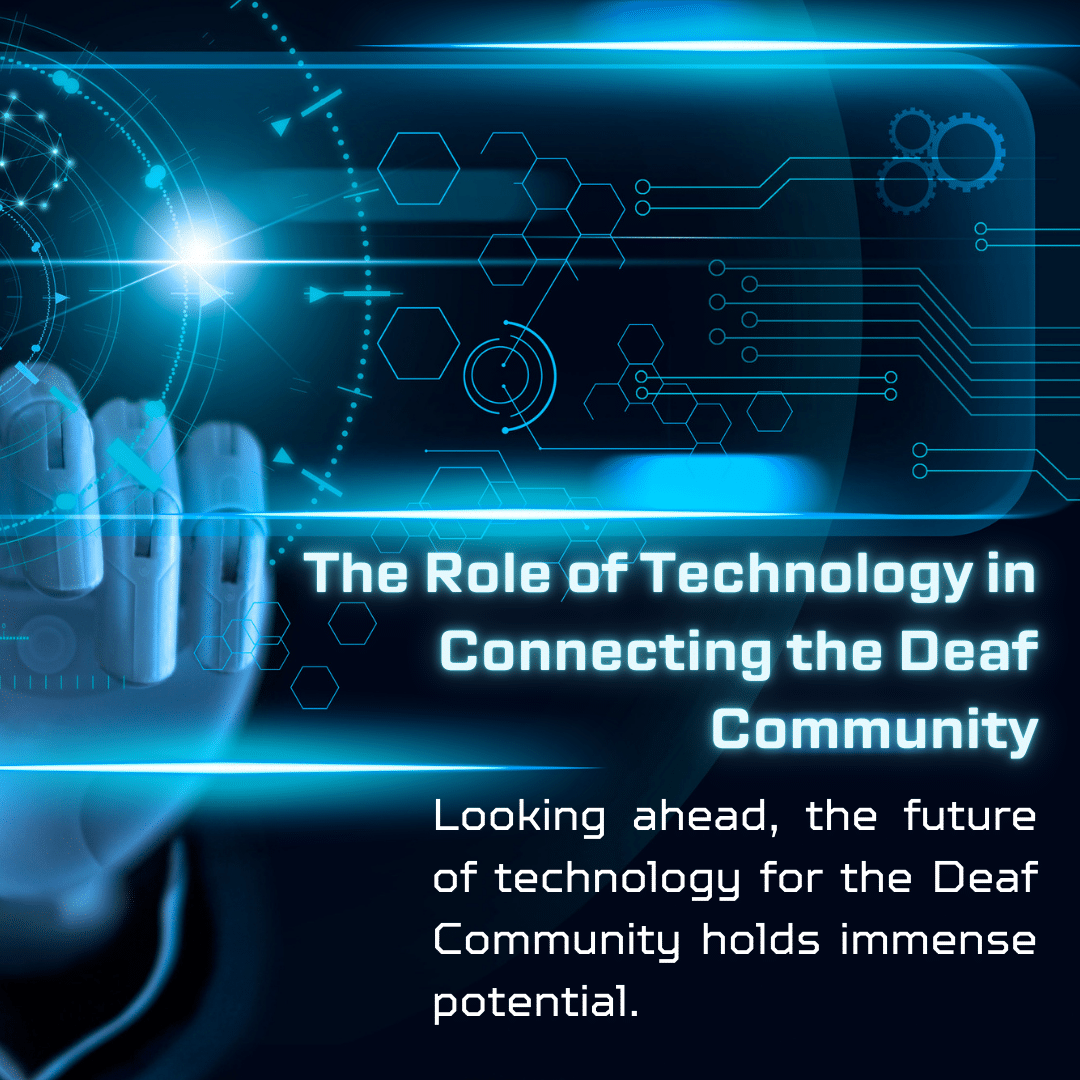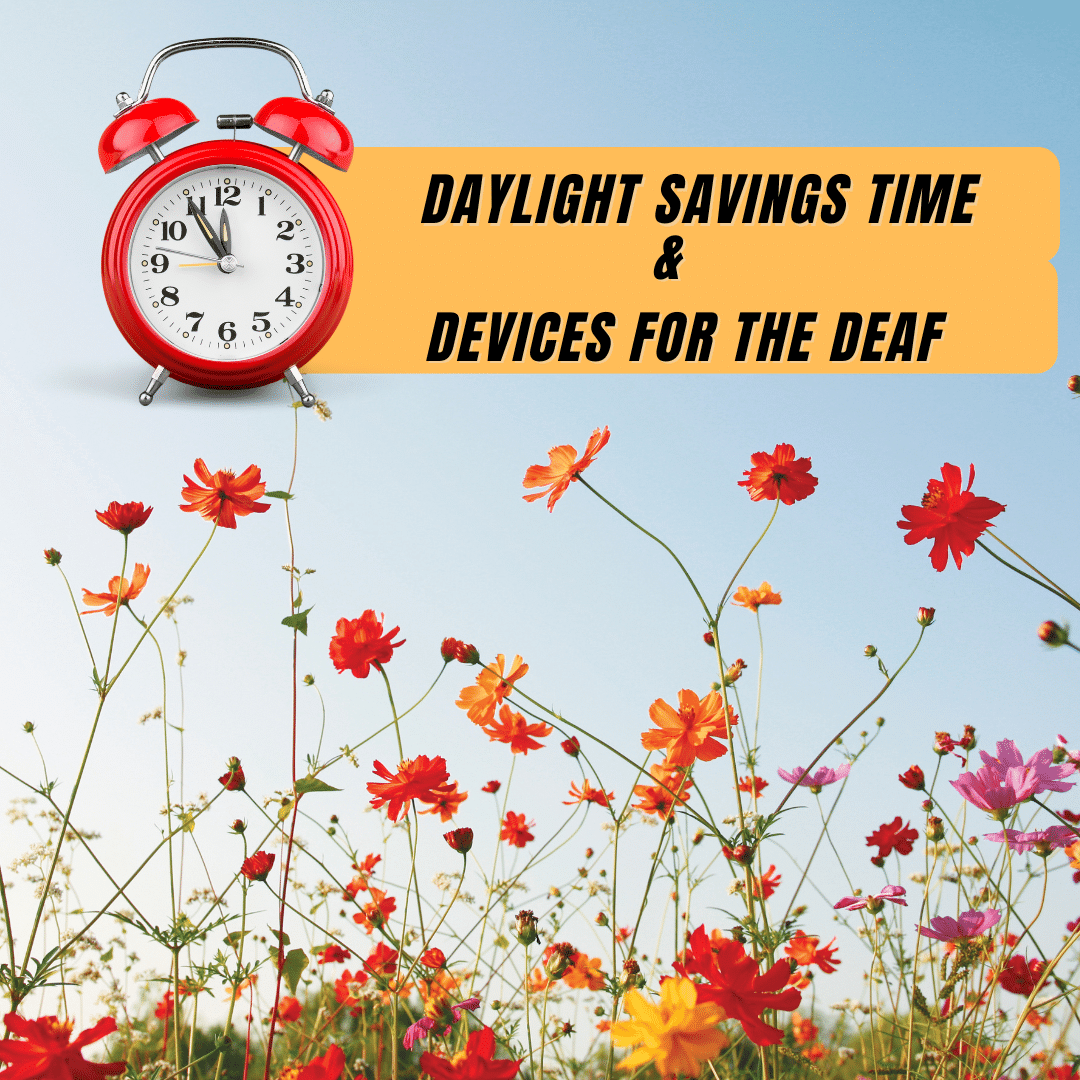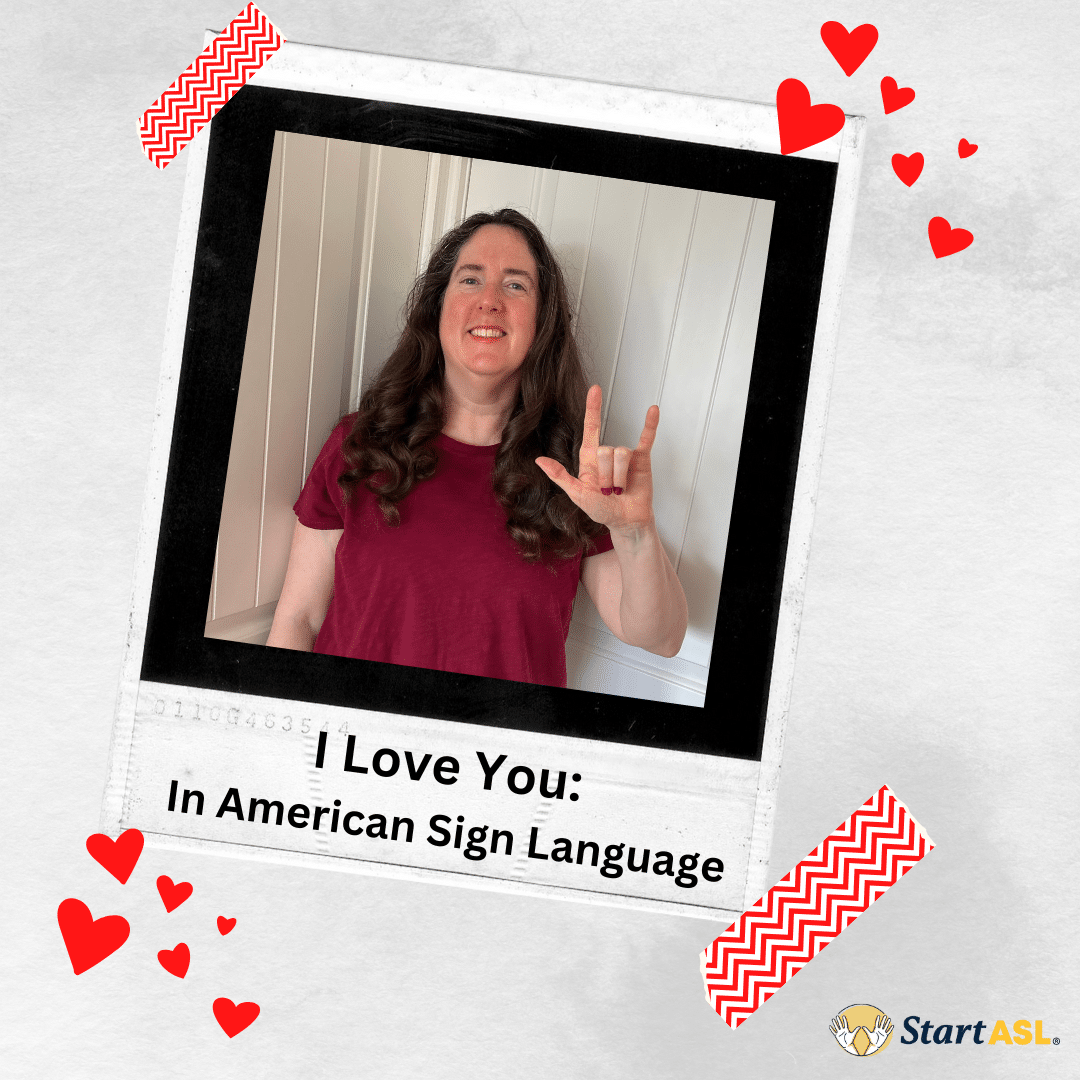
Alexander Graham Bell – Helpful or Harmful?
- by Michelle Jay
- 7 Comments

We all know Alexander Graham Bell (known as AGB in the Deaf community) as the inventor of the telephone.
That makes him a good guy, right? Creating a way for man to effectively communicate across long distances? Not so much.
Bell was an innovator and educator. However, he was also an oppressor, and this side of him isn’t usually discussed.
His Helpful Side
Alexander Graham Bell’s “helpful side” is what is usually written in his biographies.
He was born in Edinburgh, Scotland in 1847. Ever since he was young, he always had an interest in hearing and speech.
Alexander Melville Bell, his father, was the creator of a series of symbols that that showed speech-the position and movement of the lips, throat, and tongue when making sounds. This was called “Visible Speech” and was used to teach deaf people how to speak.
Bell helped his father with public demonstrations of Visible Speech in 1862 until 1869 when he became his father’s partner.
Bell had been experimenting with acoustics and wanted to find a way to improve the telegraph so that it can transmit sounds. Many inventors before Bell had unsuccessfully attempted this.
In 1870, Bell’s brothers died of tuberculosis, and his family moved to Brantford, Ontario, Canada. In Boston, he opened a school for teachers of the deaf in 1872. During his work there, he became friends with attorney Gardiner Green Hubbard. Hubbard’s daughter, Mabel, had been struck with scarlet fever as a child and became deaf.
Bell began to write specifications to patent a device that could carry speech by wire. This was the telephone. He was issued the patent for the telephone on March 7, 1876. He transmitted speech successfully for the first time only three days later. He married Mabel Hubbard the same year.
Bell founded the American Association to Promote the Teaching of Speech to the Deaf in 1890. This is now known as the Alexander Graham Bell Association for the Deaf.
Bell died in 1922 at the age of seventy-five.
His Harmful Side
Alexander Graham Bell’s “harmful side” is very surprising, but is not usually discussed.
First, while Bell was the first to patent the telephone, he was not the first to come up with the idea for the telephone. There is a lot of controversy around who actually invented the first telephone. Some even say that Bell stole the idea from Elisha Gray, who was a professor at Oberlin College, and beat him to the patent office.
But even worse – Bell believed that deafness was a horrible curse to the person who suffered from it.
That is a pretty awful thing to think, and for someone with so much influence, a terrible thought to spread.
There are several reasons why Bell would have this thought about deafness. One is that he grew up with a value for speech, and as an educator of the deaf, he saw how difficult it is for a deaf child to acquire knowledge through spoken and written language. He also did not come in contact with those Deaf people who were part of the Deaf community and who had successfully found happiness within it. So, therefore, without this exposure, it’s not hard to see how Bell would have seen deafness as only a handicap.
However, Bell also saw deafness as a threat to the social order. He thought that deaf people weakened society. In the 1880s, when Bell was rather wealthy and had a lot of time on his hands, he became worried about the numbers of deaf people in America and how they were increasing. He thought this was weakening the country and was determined to find a way to stop it.
Because deafness seemed as though it were incurable, Bell wanted to find a way to prevent the birth of deaf children. He examined data from many American schools for the deaf and wrote a paper entitled Memoir upon the Formation of a Deaf Variety of the Human Race.
Bell read his paper at the American Academy of Sciences at New Haven, Connecticut in 1883. Then, in 1884, he read it to the Conference of Principals of American Schools for the Deaf.
Bell’s thought and conclusions were shocking. To justify his findings, he documented three significant facts about deaf Americans:
- The tendency of deaf people to marry other deaf people
- The numbers of deaf people marrying other deaf people increased during the nineteenth century
- This increase would continue into the future unless drastic steps are taken to stop it
Bell stated that this tendency of deaf people marrying deaf people would eventually lead to a creation of a deaf race and “would be a great calamity to the world.”
His reasons for the tendency of deaf people marrying other deaf people were as follows:
- Residential schools for the deaf
- deaf associations and organizations
- deaf newspapers
- education in sign language
- writing in sign language
- erroneous ideas about deaf people
- deaf people’s desire to create a deaf state
Numbers 5-7 were of no importance and made no sense. Sign language writing doesn’t really exist, his erroneous ideas were that deaf people could not be taught to speak well enough to carry a conversation, and a deaf state would never be established because of lack of support for the deaf community.
His first four reasons, though, were very valid and true. If he successfully eliminated these things, the American deaf community would be non-existent. And that is what he wanted to do. Without the cultural links and socializations of deaf people, they would be isolated and more integrated into the hearing society.
Bell had two ideas for keeping deaf people from marrying. One was to enact laws that would forbid the congenitally deaf people from intermarrying. This, however, Bell though, would lead to immoral actions and illegitimate children. It is also difficult to tell when a deaf person became deaf.
His second idea was to eliminate residential schools, prohibit sign language use in deaf education, and forbid deaf teachers from teaching deaf students. Bell thought these measures would encourage deaf people to use their oral skills and become more integrated into the hearing society. These measures could be “hidden” and seen as education reforms.
Bell’s thoughts and findings did not lead to the end of deaf marriage, but it did instill fear and anger in many deaf people and spark debates.
To gain support, Bell printed his Memoir and sent it to members of Congress, the principals of schools for the deaf, and other people involved in deaf education. They were not impressed. The truth came out. Those involved in deaf education knew that most of their students had hearing parents. Deaf children are rarely born to deaf parents.
Bell wanted to take away everything Deaf people had-their schools, their organizations, their newspapers, and even their language. Thankfully, he was unsuccessful. Deaf people are still people. There is nothing wrong with them, and they most definitely do not pose a threat to the human race.
This information may come as a shock to you, and it should. There are two sides to every story, and this is one side that most people do not know about-Bell and his fight for eugenics against the deaf.
Were Alexander Graham Bell’s contributions to society more helpful or harmful?
Alexander Graham Bell Papers Submitted by Students
Who is your favorite person from Deaf history?
Alexander Graham Bell
by Erika (Salt Lake City, Utah) | February 2, 2014
My favorite person from Deaf History is Alexander Graham Bell because he gave the deaf population something to fight for.
Every story needs a great villain and quite often the villain does not seem so villainous on the surface. Every great story where good triumphs over evil the villain makes the hero stand up and fight for something, anything.
While I will readily admit that Bell was most likely a villain out of ignorance he was still a villain nonetheless. The push he made to force oralism gave the deaf community a reason to remember how proud they were of a language they had created. Had Bell not pushed for oralism it is quite possible that ASL would never have seen the realization that it has today.
Now recognized as its own language and taught in most colleges, including hearing schools, ASL has become a force to be reckoned with. It is always nice to see a group stand together to defend something they are proud of.
Alexander Graham Bell
by Kathleen Sweeney | December 7, 2016
My favorite contributor to the deaf community is Alexander Graham Bell. Bell’s work was highly influenced by his wife and mother being deaf. He is most known for his invention of the telephone. Bell’s central interest lied in deaf education and teaching.
His father was a researcher of speech and he too took interest in the physiology of speech. Bell utilized his fathers method called “visible speech” to teach deaf students.
Bell also published a paper analyzing the culture of the deaf community. He expressed that deaf people often socialized together, within the community. He was an extreme supporter of oralism and believed the speech was the superior way for dead individuals to thrive.
Later on, Graham expressed the universal language for the deaf community was established and should be recognized. Later on the use of sign in the classroom became more prevalent and was known as the “natural language” for individuals who are deaf.
Alexander Graham Bell
by Audrey Jacobs | January 11, 2017
Alexander Graham Bell was an educator, a scientist and an inventor during the late 1800s and early 1900s. Born in Edinburgh Scotland, on March third, 1847, he did all his studies in Europe going to a private high school, Edinburgh Royal High School. His first portion of college was at Edinburgh University, later transferring to The University of London, where he completed his studies in visible speech. His father and grandfather both studied communication for the deaf, his mother was almost completely deaf, this rooted his inspiration to find forms of speech. Shortly after establishing a practice in London, his two brothers became sick with tuberculosis and the whole family moved to America to become healthier. Though he wasn’t happy about his transportation, he continued studying the human voice.
In 1871, he started working on telegraph transmissions for several messages using different frequencies on wires. He later gained support from people who found promises in his products to fund his experiments. Thomas Sanders was a wealthy businessman and also offered Bell a place to stay, and Gardiner Hubbard was an American lawyer, financier, and philanthropist. After many failed attempts in 1876, he succeeded and invents the first telephone. This wasn’t his first invention, from the time he was twelve, while working the the wheat factory he invented a way to use paddles to turn over the grains. When he was sixteen, he started working with his dad and sparked his interest in deaf communications.
After furthering his inventions he went back to his original passion of helping the deaf. He pushed towards Oralism, where the deaf learn to speak instead or Manualism, that supports the use of ASL. In 1890, where he established the American Association to promote the teaching of speech to the deaf. He believed that oral education would decrease deaf marriages, decreasing the possibility for deaf children. Increase the opportunity for the deaf community for education and employment.
My Least Favorite
by Dianna Hudson (Ohio) | March 8, 2013
I have to say the Alexander Graham Bell is my least favorite historical figure in the Deaf community. I saw details of his work in the documentary film, “Through Deaf Eyes”. It also stated that he didn’t feel deaf people should marry another deaf person, as this may produce a deaf child and he was against that. I don’t know how he could take this form of thought, I believe his mother and/or wife were deaf as well. I don’t agree with the oralism argument in educating the Deaf, and I think it hinders and is a waste of time more than it helps.
Abbe de ‘Epee is a favorite for taking the time to learn to communicate with the deaf to teach them.
Last but not least would have to be Heather Whitestone. I think I remember when she won the pageant, and I think that she made a positive influence in the history of the Deaf and the history of America as a whole.
William Stokoe is another one you have to love. I wonder if he had any idea what his dissertation would do for the Deaf community. I think ASL is a beautiful language. I’m so glad that it has successfully evolved for the Deaf culture, and I appreciate each and every person who has a positive influence in Deaf history, giving the Deaf something to be proud of.
Alexander Graham Bell
by Jamie Saults | May 18, 2016
I am writing about Alexander Graham Bell because I thought it interesting that he fought so hard for the deaf community and even married a deaf person, yet also thought that deaf people weakened society. His beliefs led to a debate in the form of communication used by the deaf and to a ban on the use of ASL that lasted for one hundred years.
Bell had had an interest in hearing and speech since he was a young boy. He had been exposed to the deaf community through his parents. His mother was deaf and his father had created the symbols for visible speech, which was used to teach deaf people how to speak. Years later, Bell opened for a school for teachers of the deaf in Boston. His associations there, including meeting his wife, compelled him to begin his work on the telephone. He founded the American Association to Promote the Teaching of Speech to the Deaf in 1890. This is now known as the Alexander Graham Bell Association for the Deaf.
It is believed that Bell thought deaf people posed a threat to the social order. As a result, he tried to find a way to prevent the birth of deaf children. He also wanted to stop American Sign Language as the means of communication for the deaf and instead use oralism because he thought it would be a better way of communication for the deaf to assimilate into mainstream society. His influence against manualism or ASL led to a century long ban of ASL in schools.
The debate of manualism vs. oralism exists today, but fortunately ASL is no longer banned.
Alexander Graham Bell
by Hanna England | September 15, 2016
My favorite person from Deaf History is Alexander Graham Bell. Graham was born on March 3, 1847, and later died on August 2, of 1922. Although Bell is mainly known for his invention of the telephone, he also is known as the father of oralism in Deaf history. Alexander grew up with a deaf mother, and a father who was centered on deaf education. His father developed an alphabet known as the “Visible Speech.”
Bell’s main interest in his life was deaf education. For most of his life, Alexander studied the physiology of speech. Later on, Bell started teaching the alphabet, invented by his father, to deaf students. He then opened a school that would educate teachers on how to teach deaf children.
Years later in 1884, “Upon the Formation of a Deaf Variety of the Human Race” was put into the world, it was about how the deaf community was rising. They were becoming a society of their own, they were communicating with each other and socializing with each other.
As Brain Greenwald stated, “Society in general views Alexander Graham Bell as an American hero, as the inventor of the telephone. He was famous, wealthy, and influential. His own Mother was deaf. He was always associating with the Deaf community and he was a teacher of deaf children. He had his own day school in Boston. He was very familiar with the Deaf world.” Alexander Graham bell was most importantly known as the inventor of the telephone, however being less known for aiding the deaf community, which was also one of his main accomplishments. Bell was a strong influence on the deaf community.
Alexander Graham Bell a Villain?
by Christi (Charleston, WV) | November 21, 2011
Your history of sign language article was very interesting to read. I would have to say my favorite person is Abbe de L’Epee. In reading his story I can see that he truly was a follower of Christ. Christ is our example and Christ became a servant to mankind and gave his life that we could be saved. Abbe de L’Epee must have truly sacrificed his life in order to accomplish all that he did for the deaf. He became a servant to the deaf. His life would be a good example to anyone that feels a call to deaf ministry.
I somewhat disagree with your statements regarding Alexander Graham Bell. Perhaps it is my positive attitude but to say he really tried to damage the lives of deaf people is a bit slanderous. Surely he must have thought he was doing something good for the deaf. Mr. Bell did not have a clear understanding of the deaf which can easily happen when you are outside looking in. That is why deaf people need deaf representatives or at the very least a hearing person that will truly “hear” them.
Also, to say oralism is wrong for all deaf people is a very broad statement. Some very successful deaf people have used oralism which probably somewhat contributed to their success. Although I would imagine learning with the oralism method would be very difficult for a deaf person. If I had a deaf child I would want them to have every access to education possible and considering that they are in a hearing world that speaks English (if you live in America) any method that would allow them to understand the English language would be beneficial.
I do agree however that to deny the deaf the use of sign language is tragic. ASL is a beautiful language and a very efficient means of communication. I really enjoyed the article and the chance to share my opinion. This is just my opinion from the outside looking into a fascinating culture.
Comments:
by Anonymous: I looked the definition for an “Audist” and I was disappointed to hear the negativity about deafness. I totally agree that if a person can be helped in oralism that they should go for it. But at the same time those who are deaf should be given credit for what they have accomplished. Being deaf in a hearing world is difficult as it is. That is why I am all for total communication which includes oral and sign language. With the high rate of hearing loss and the high cost of hearing aids is it any wonder that people are perplexed about which way to go. With the large number of those who have hearing loss that are not getting much benefit from hearing aids, sign language goes a long way in helping to improve one’s lifestyle. In many schools, learning a second language is mandatory. Why not let sign language be that second language? Sign language can be taught to those who are still in the cradle. We need to face up to the fact that this world in in need of Sign Language Interpreters. What better way to begin than right at the cradle.
by Michelle Jay: Thank you for your great submission! I really enjoyed reading it. I just wanted to clear up a couple things:
1. Did you read the article on Alexander Graham Bell? You can access it here: https://www.startasl.com/alexander-graham-bell. I suggest reading that article. It explains what he did and even acknowledges what you said about him being on the outside looking in.
2. The article doesn’t say oralism is wrong for all deaf people. You’re right, that would be incorrect. The article states, “[The NAD] gained a lot of support and maintained the use of sign language as they argued that oralism isn’t the right educational choice for all deaf people.” This is saying that oralism isn’t right for ALL deaf people–which is what oralism supporters believed. However, it may be the right choice for some. I guess the English could be a little more clear.
Alexander Graham Bell
by Anonymous
He is not my favorite. He is the one most interesting to me.
He is interesting because he had a deaf parent, married a deaf individual, and had deaf children yet he was so against the development of the deaf community.
I often wonder why he spent his whole life fighting to get rid of something that was a part of his life–his whole life. My theory is, with his invention of the phone, and him growing up among deaf individuals, he feared the hearing community would become extinct and his invention of the phone would become useless.
Regardless of the negative approach towards the deaf community, his negative behavior turned out to be positive overall. The deaf community now teaches oralism and ASL. The deaf community now has the NAD. The deaf community now has TTY or video phones and much more. On top of that the deaf community now has on record a foundation to learn and continue to grow from.
There is a saying in a rap song I love: “let ya haterz be your motivators.” That’s exactly what the deaf community has done and continues to do.
Alexander Graham Bell
by Heather (Liberty, MO, USA)
I know that Alexander Graham Bell is a very controversial figure in Deaf culture, understandably.
I can also see how his invention isolated an already oppressed people group–the entire deaf community for many years. However, I think it is amazing how his invention has come full-circle. Without the invention of the telephone, we would have no telephone. With no telephone, there would be no texting. Both of which are vital in connecting the Deaf community with the others, both hearing and non-hearing.
I must admit, that the article on Alexander Graham Bell was one of the first I have read that described him as a foe. This is also the first time I have heard it posed that he intentionally tried to damage the lives of Deaf people. While, I intend to investigate this further, I am baffled that he would be seen so villainously despite the fact that he was married to a deaf woman.
Certainly, it is not assumed that he was preventing her from marrying another deaf person and bringing deaf children into the world? One would have to be quite cynical to believe that he did not want what was best for her, albeit as misguided as it was.
As I said, I need to do more research. However, I am delighted that the Deaf community has so much access to information and online community through the internet and texting…which is also giving me, and others like me, that chance to study ASL and better communicate with the deaf.
Mabel Gardiner Hubbard Bell
by Alan (Sodus, New York)
Yes, Bell – the deaf wife of Alexander Graham Bell. She met “Alec” as a 15 year old medically deaf student in his oralism school. And the story begins in Make a Joyful Sound, the authorized biography of Mabel and Alec by Helen Elmira Waite.
I fear this history has painted Mr. Bell with a biased brush. One of the most influential books I have ever read; it drove me to his museum in Baddeck, Nova Scotia on two separate trips. Mr. Bell connected Anne Sullivan with Helen Keller. He, and others were pioneers of ‘sound’ research and the book tells this story.
This is a wonderful love story and a biography of the lives of both Mabel and Alexander. Their children, Elsie May and Marian and their grandchildren were also very accomplished members of society. Gilbert Grosvenor married Elsie May and started the National Geographic Society.
Graham Bell personally taught Mabel to lip read and to refine her speech so no one could tell that she was totally deaf. As a ‘test’ of his oralism method he invited her to a formal society party with his critics and his friends (none of whom knew she was deaf).
I won’t ruin it for you to read – you can guess, she stole his heart.
I hope you can find this old book. L.of C. Catalog Card # 61-14958 (1961) | Macrae Smith Company, Philadelphia
Oh the Ringing Irony
by Rebeca (Redding, California)
I do not find Alexander Graham Bell to be inspirational or admirable in this case, and yet I must say he is my favorite historical figure.
Mr. Bell’s futile attempts to make the deaf community conform was condescending and ignorant. His interest in “helping” the deaf of his time was, in my opinion, “phone-y!” If he were alive today, he would have to eat his own telephone cord.
It’s refreshing to see a useful invention morph into a useful tool for those who were wrongly oppressed for so many years. I am referring to the IP (relay phone). Inventions are sometimes misused or turned into hurtful objects. In this case, the telephone has become a supporter of sign language. It is sweet victory for the deaf community and for all of us by extension!
What a shame it would have been if sign language would had been wiped out. But, ring ring, hello? Sign language is one of those unique languages that is impossible to wipe out. Even if Mr. Bell and his cohorts had succeeded to a certain degree at that time, sign language would have simply taken a slightly different route, but still would be alive and well today.
It’s not like some of the ancient tribal languages that have died away never to be recovered. For centuries, the deaf have communicated by signs. How a man like Alexander Graham Bell, with all his intelligence and patience for such an intricate and delicate machine, could not understand the importance of sign language, is a mystery to me. Much like my cell phone… ironic, isn’t it?











7 Responses
I just learned about Alexander Graham Bell and I don’t very much like him he is like hitler but he did not kill anyone I think in regular classes they should teach you about his part in the deaf community. I like Linda Bove who is an actor she is pretty and talented.
AGB is mean
No AGB is great and also I’m deaf!
I used spoken language with cued speech and threw ASL away.
There are many Deaf people who can not hear at all, not even with a hearing aid. So, ASL really is a great option. Besides, I like to think of it as a secret language that not many people know.
Weird, honestly if you read it in depth, it is not an awful thought to think of it that way, it truly is a curse not to hear the sounds of the amazing world our Heavenly Father has created for us, so really nothing there….
Do you think god feels that way he says to love everyone do you think that’s how all Christians think I get how you would think that but was hitler good. Alexander Graham bell basically wanted to make a no deaf world and Deaf people have their own culture i think culture is a good thing. Especially if it helps you to learn stuff. I am learning ASL i have a deaf friend and if he was forced to learn to talk and couldn’t that would hurt my heart also because of him they tied kids hands behind their backs if they tried to sign for 100 years there is a while generation that didn’t get educated because all they wanted to do was teach them how to speak. I get that not hearing sounds sad. But deaf people would never change it they like being deaf because that’s their identity. Just Like someone who is blind. I am sorry if this sounds mean I feel very strongly I just learned about this in ASL class. I am a little frustrated.